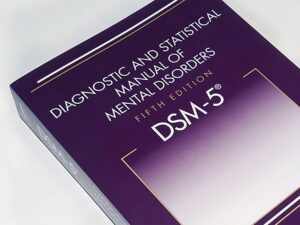Eating disorders come in all shapes and sizes, which is why it’s important to have a guide that can help you understand the different types of disorders and how they’re diagnosed. Bulimia, specifically, is an eating disorder that is characterized by binge eating followed by purging. While most people associate bulimia with making oneself vomit, there are other ways to purge after a binge. This guide will explore the different types of purging, as well as the diagnostic criteria for bulimia according to the DSM-5.
Contents
What is Bulimia?

Bulimia is an eating disorder that is characterized by episodes of binge eating followed by purging. Individuals with bulimia often feel out of control during a binge and use purging as a way to regain control. Purging can take many forms, including self-induced vomiting, misuse of laxatives or diuretics, fasting, or excessive exercise.
Bulimia is a serious and potentially life-threatening condition that can lead to severe physical and psychological complications. Bulimia is more common in females than males and typically begins during adolescence or young adulthood.
What Is DSM-5?
The Diagnostic and Statistical Manual of Mental Disorders, Fifth Edition (DSM-5) is the most recent edition of the DSM, the manual used by clinicians and psychiatrists to diagnose mental disorders. The DSM-5 was published in 2013 and made some major changes to the way disorders are categorized and diagnosed.
One of the most significant changes in the DSM-5 is the reclassification of eating disorders. In the DSM-IV, eating disorders were classified as either Anorexia Nervosa or Bulimia Nervosa. However, in the DSM-5, there is now a third category called Eating Disorder Not Otherwise Specified (EDNOS). This category includes all other types of eating disorders that do not fit neatly into either Anorexia Nervosa or Bulimia Nervosa.
EDNOS can be further broken down into three subtypes: Restrictive type, Binge-eating type, and Purging type. The Restrictive type is characterized by restrictive eating habits and an intense fear of gaining weight. The Binge-eating type is characterized by episodes of binge eating followed by compensatory behaviors such as purging or fasting. The Purging type is characterized by self-induced vomiting or misuse of laxatives/diuretics.
The DSM-5 Criteria for Bulimia

The DSM-5 criteria for bulimia nervosa are as follows:
1. Recurrent episodes of binge eating. An episode of binge eating is characterized by both the following:
- Eating, in a discrete period (e.g., within any 2 hours), an amount of food that is larger than what most people would eat in a similar period under similar circumstances.
- A sense of lack of control over eating during the episode (e.g., a feeling that one cannot stop eating or control what or how much one is eating).
2. Recurrent inappropriate compensatory behaviors to prevent weight gain, such as self-induced vomiting; misuse of laxatives, diuretics, or other medications; fasting; or excessive exercise.
3. Binge eating and inappropriate compensatory behaviors occur, on average, at least once a week for 3 months. Also, the purging behaviors must be associated with self-evaluation that is unduly influenced by body shape and weight.
4. Self-evaluation is unduly influenced by body shape and weight. The person has a persistent preoccupation with food and weight. This can lead to dramatic changes in eating habits and/or excessive exercise, which can be detrimental to health.
5. The disturbance does not occur exclusively during anorexia nervosa or another eating disorder (e.g., avoidant/restrictive food intake disorder, bulimia nervosa, pica, rumination disorder) and is not attributable to another medical condition (e.g., obesity, pregnancy).
6. The disturbance causes clinically significant distress or impairment in social, occupational, or other important areas of functioning.
Pros and Cons of a Bulimia Diagnosis With DSM-5

There are many benefits of receiving a diagnosis of bulimia nervosa using the DSM-5, as this can help individuals to understand their condition and seek appropriate treatment.
Some other benefits of a DSM-5 diagnosis include:
- A DSM-5 diagnosis can help individuals to understand their condition and seek appropriate treatment.
- Also, A DSM-5 diagnosis can help healthcare professionals to better understand and treat the condition.
- A DSM-5 diagnosis can help to raise awareness of bulimia nervosa and reduce the stigma surrounding the condition.
However, there are also some potential drawbacks of receiving a DSM-5 diagnosis of bulimia nervosa, which include:
- The diagnostic criteria for bulimia nervosa in the DSM-5 are very specific and may exclude some individuals who have the condition but do not meet all of the criteria.
- The diagnostic criteria for bulimia nervosa in the DSM-5 are based on Western cultural norms and may not apply to or be accurate for individuals from other cultures.
- A DSM-5 diagnosis of bulimia nervosa can be stigmatizing for some individuals and may lead to discrimination.
The drawbacks of a DSM-5 diagnosis of bulimia nervosa should be weighed against the potential benefits when deciding to seek a diagnosis.
Conclusion
The DSM-5 is a vital tool for understanding and diagnosing bulimia. Providing clear and detailed criteria, allows professionals to accurately assess whether someone is suffering from this eating disorder. If you or someone you know is exhibiting the signs of bulimia, please seek professional help as soon as possible. With the right treatment, recovery is possible. This guide should not be used as a replacement for professional help, but rather as a starting point for understanding this complex disorder.
Hope this article was of help to you! If you are suffering from mental health disorders, you may seek help from Therapy Mantra. We have a team of highly trained and experienced therapists who can provide you with the tools and skills necessary for overcoming mental health disorders. Contact us today to schedule an online therapy or download our free Android or iOS app for more information.


